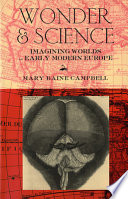 | Charles Coulston Gillispie - 1960 - 596 pages
...outward surfaces, we smell only the smells, and taste the savours; but their inward substances are not to be known either by our senses, or by any reflex...idea of the substance of God. We know him only by his most wise and excellent contrivances of things, and final causes; we admire him for his perfections;... | |
 | Henry G. van Leeuwen - 1970 - 188 pages
...their outward surfaces, we smell only the smells and taste the savors, but their inward substances are not to be known either by our senses or by any reflex...then, have we any idea of the substance of... God." 7fl Another feature of Newton's philosophy of science in which his views parallel those of the Royal... | |
 | Michael R. Matthews - 1989 - 180 pages
...their outward surfaces, we smell only the smells, and taste the savors; but their inward substances are not to be known either by our senses, or by any reflex...idea of the substance of God. We know him only by his most wise and excellent contrivances of things, and final causes; we admire him for his perfections;... | |
 | W. K. Thomas, Warren U. Ober - 1989 - 348 pages
...remarked: "In bodies, ...we touch only their outward surfaces. . .; but their inward substances are not to be known either by our senses, or by any reflex...then ], have we any idea of the substance of God." The cause of gravity, he said further, "penetrates to the very centres of the sun and planets." (Mathematical... | |
 | Steven Shapin - 1996 - 236 pages
...outward surfaces, we smell only the smells, and taste the savours; but their inward substances are not to be known either by our senses, or by any reflex act of our minds." If other practitioners equated proper natural philosophy with the provision of mechanical accounts,... | |
 | Thomas C. Pfizenmaier - 1997 - 256 pages
...outward surfaces. We smell only the smells, and taste the flavours; but their inward substances are not to be known either by our senses, or by any reflex...less, then, have we any idea of the substance of God. 26 This idea was reinforced in his analysis of the language the early bishops allowed in the theological... | |
 | Jacques Roger - 1997 - 524 pages
...their outward surfaces, smell only the smells, and taste their savors; but their inward substances are not to be known either by our senses or by any reflex act of our minds."14 Newton concluded from this that it was impossible to know God's true nature. Buffon on the... | |
 | Mary B. Campbell - 1999 - 388 pages
...outward surfaces, we smell only the smells, and taste the savours; . . . their inward substances are not to be known either by our senses, or by any reflex act of our minds."1 But Margaret Cavendish knew their inward substances, and if she didn't, she made them up.... | |
 | Michael Caputo - 2000 - 248 pages
...their outward surfaces, we smell only the smells and taste the savours, but their inward substances are not to be known either by our senses or by any reflex...idea of the substance of God. We know Him only by His most wise and excellent contrivances of things and final causes; we admire Him for His perfections,... | |
 | Frank T. Boyle - 2000 - 262 pages
...their outward surfaces, we smell only the smells, and taste the savors; but their inward substances are not to be known either by our senses, or by any reflex...less, then, have we any idea of the substance of God" (3: 546). Newton is suggesting sentiments not unlike those expressed in Swift's "Digression on Madness"... | |
| |